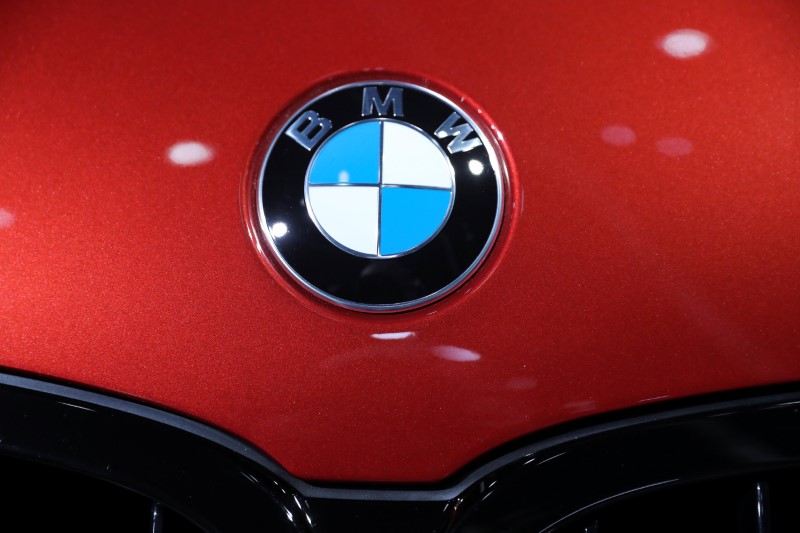By Edward Taylor
FRANKFURT (Reuters) - BMW AG
The firm forecast a margin on automotive earnings before interest and taxes (EBIT) of 0% to 3% this year, versus the 2-4% seen before demand was crippled by worldwide restrictions on movement to tackle the virus.
"The BMW Group still expects the spread of the coronavirus and the necessary containment measures to seriously dampen demand across all major markets over the entire year," the Munich-based company said on Wednesday.
BMW reported a 133% jump in first-quarter profit to 1.38 billion euros ($1.50 billion). But that was against a period last year when earnings were pushed down to 589 million euros by a one-off 1.4 billion euro provision.
The automotive EBIT margin came in at 1.3%.
Jefferies automotive analyst Philippe Houchois described the margin as disappointing, given solid sales of typically more profitable sport-utility vehicles (SUVs).
BMW expects to make an operating loss in the second quarter as coronavirus lockdowns continue in large markets like the United States and Britain, it said.
Like rivals, BMW also said it would throttle back investments to preserve cash. A 12 billion euros cost savings and efficiency plan will be extended, it added, without providing further details.
"In light of the current situation, we will be delaying a number of projects, like the plant in Hungary. Other projects will be carefully reconsidered," Chief Financial Officer Nicolas Peter said, adding the Hungary plant would be delayed by a year.
Free cashflow at the automotive business was minus 2.2 billion euros in the first quarter and BMW said it no longer expected to achieve positive free cash flow in 2020, despite cutting back investments.
At 0845 GMT, its shares were down 2.9% at 51.99 euros.
CHALLENGES
BMW's forecasts are the latest sign that profitability at traditional automakers is on the wane, as they spend huge sums to clean up combustion engines in the face of increasingly stringent emissions regulations as well as rising competition from electric vehicle specialist Tesla Inc (O:TSLA).
Last week, Tesla said its automotive gross margin rose to 25.5% in the first quarter from 20.2% a year earlier, due to a 40% rise in deliveries, helped by demand for its Model Y crossover utility vehicle.
By contrast, BMW's passenger car deliveries fell 20.6% to 477,111 cars in a quarter blighted by the virus outbreak.
The company also said it had set aside a "low triple digit million" euros amount to cover potential defaults from customers buying cars on loans and leasing contracts.
BMW has had to ramp up spending on hybrid petrol-electric and pure electric vehicles to try to meet emissions rules and offset its heavy reliance on petrol-guzzling SUVs.
Sales of BMW's "X" series of SUVs jumped 21% last year, making up 44% of the BMW brand's global total.
Carbon dioxide emissions from new vehicles sold in the European Union must be 40% lower in 2021 compared with 2007, and 37.5% lower in 2030 versus 2021 - with fines for non-compliance.

BMW's 2021 target is an EU fleet average of 102.5 grams of CO2 per kilometre. Last year, its average fell just 1 gram from a year earlier to 127 grams, while research and development spending left its automotive EBIT margin at 4.9%.